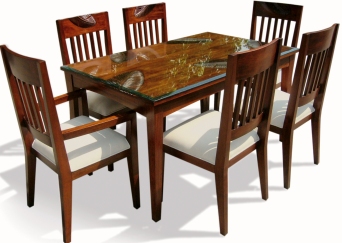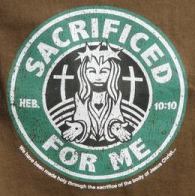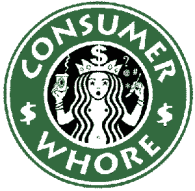Ninth Circuit Vacates Injunction Enjoining Possible Trademark Disparagement
The 43(B)log beat me to a new trademark case that’s worth checking out. On Sept. 26, the Ninth Circuit vacated the District of Arizona’s preliminary injunction enjoining defendant Tim Oey “from making any comments that could be construed as to disparage upon [the plaintiff Freecycle Network’s] possible trademark and logo” and requiring Mr. Oey to “remove all postings from the [I]nternet and any other public forums that he has previously made that disparage [The Freecycle Network’s] possible trademark and logo.”
Just as interesting as the opinion is the list of attorneys weighing in on Mr. Oey’s behalf. It includes Marty Schwimmer, Mark Lemley, Lawrence Lessig, “Amici 38 Intellectual Property Law Professors” and the Electronic Frontier Foundation. With firepower like this, you know the stakes were high. For a summary of the decision, check out Prof. Tushnet’s post.
The case cite is The Freecycle Network, Inc. v. Oey, __ F.3d __, 2007 WL 2781902, No. 06-16219 (9th Cir.).
Bourne Ultimatum: Vancouver Furniture Importer Settles Trade Dress Case
On Sept. 25, Vancouver, Wash.-based furniture importer Bourne International, Inc., settled its trade dress and copyright infringement claims against Chet Stoler and his company, South Seas Trading Co. (Previous STL coverage discussing the Western District’s refusal to enter the parties’ stipulated protective order here.)
Bourne had alleged that Mr. Stoler, a former Bourne officer, director, and shareholder, had been responsible for the manufacturing, designing, importing, and marketing of Bourne’s furniture lines, including a line called THE LEAF COLLECTION. Bourne alleged that Mr. Stoler set up a competing importing business and sold items from THE LEAF COLLECTION to Bourne’s customers without Bourne’s authorization, infringing Bourne’s trade dress.

The parties’ Stipulation and Final Judgment describes THE LEAF COLLECTION’s trade dress as: “banana leaves, reticulate venaton on each banana leaf, each leaf has dark shading representing the venation and outline, the leaves are approximately uniform in size, the leaves are carved, a pattern of banana leaves at different angles to one another, and a dark, mahogany wood color.”
As part of the settlement, the parties agreed that “[u]nless Plaintiff receives injunctive relief enjoining Defendants’ confusing sale of items falling within Plaintiff’s copyright and trade dress for THE LEAF COLLECTION©™ in the sale, marketing, and advertising of imported furniture, Plaintiff will be irreparably injured.” The proposed order permanently enjoins defendants from deriving compensation from the sale or manufacture of furniture, or colorable imitations thereof, from Bourne’s furniture lines, including THE LEAF COLLECTION.
The parties also agreed to dismiss all of their claims and counterclaims against each other with prejudice, without fees or costs to any party.
The case cite is Bourne International, Inc. v. Stoler, No. 06-5680 (W.D. Wash.).
Western District Denies Cascade Financial's Preliminary Injunction Motion
The Western District today denied Cascade Financial Corp.’s and Cascade Bank’s motion for preliminary injunction against Issaquah Community Bank, Capital Bancorp, Ltd., and Robert Ittes. (STL coverage of this case here and here.) Plaintiffs had argued that defendants’ use of ISSAQUAH COMMUNITY BANK as a name and trademark infringes plaintiffs’ ISSAQUAH BANK trademark for competing banking services. Judge Thomas Zilly decided the motion without oral argument.
The court stated it will enter an opinion explaining the basis for its ruling at a later date.
The case cite is Cascade Financial Corp. v. Issaquah Community Bank, No. 07-1106 (W.D. Wash.).
Memorial Set for Eastern District Judge Alan McDonald
 A memorial will be held for Eastern District Judge Alan McDonald, who died in July at age 79. Judge McDonald was appointed by President Reagan in 1985. He had been on senior status for the past 11 years. The memorial is scheduled for 1 p.m. on Oct. 5 in the second floor courtroom of the William O. Douglas Courthouse in Yakima, Wash.
A memorial will be held for Eastern District Judge Alan McDonald, who died in July at age 79. Judge McDonald was appointed by President Reagan in 1985. He had been on senior status for the past 11 years. The memorial is scheduled for 1 p.m. on Oct. 5 in the second floor courtroom of the William O. Douglas Courthouse in Yakima, Wash.
Seattle Post-Intelligencer Reports on Starbucks Logo "Parody"
 On Sept. 21, the Seattle Post-Intelligencer ran a story about a Christian-themed clothier selling T-shirts and caps with a Christian spin on Starbucks’ familiar logo. It replaces the siren with Jesus and the words “Starbucks Coffee” with “Sacrificed for Me.” It only comes in one color: coffee. It’s available locally for $14.99 at a Shell gas station in Seattle’s Queen Anne Hill neighborhood, and on the Internet at www.christiantshirts.com and www.JesusHats.com.
On Sept. 21, the Seattle Post-Intelligencer ran a story about a Christian-themed clothier selling T-shirts and caps with a Christian spin on Starbucks’ familiar logo. It replaces the siren with Jesus and the words “Starbucks Coffee” with “Sacrificed for Me.” It only comes in one color: coffee. It’s available locally for $14.99 at a Shell gas station in Seattle’s Queen Anne Hill neighborhood, and on the Internet at www.christiantshirts.com and www.JesusHats.com.
The maker, Berryville, Ark.-based Kerusso, is the nation’s largest Christian-themed apparel company. Kerusso told the P-I: “It’s interesting how many of our parodies do end up as best-sellers. I think people like the fact that they can get a little chuckle out of something and at the same time express their faith.”


Parody or infringement?
Kerusso’s (left) and Kieron Dwyer’s adaptations
While it may be a best seller, is it really parody? If so, it’s protected as free speech. If not, it’s trading on Starbucks’ goodwill. In the Ninth Circuit, “a true parody will be so obvious that a clear distinction is preserved between the source of the target and the source of the parody….” Dr. Seuss Enterprises, L.P. v. Penguin Books USA, Inc., 109 F.3d 1394, 1405 (9th Cir. 1997). Moreover, “[t]he claim of parody is no defense ‘where the purpose of the similarity is to capitalize on a famous mark’s popularity for the defendant’s own commercial use.’” Id. at 1406, quoting Hard Rock Cafe Licensing Corp. v. Pacific Graphics, Inc., 776 F.Supp. 1454, 1462 (W.D.Wash.1991).
As the Ninth Circuit later explained, “the book The Cat NOT in the Hat! borrowed Dr. Seuss’s trademarks and lyrics to get attention rather than to mock The Cat in the Hat! The defendant’s use of the Dr. Seuss trademarks and copyrighted works had no critical bearing on the substance or style of The Cat in the Hat!, and therefore could not claim First Amendment protection. Dr. Seuss recognized that, where an artistic work targets the original and does not merely borrow another’s property to get attention, First Amendment interests weigh more heavily in the balance.” Mattel, Inc. v. MCA Records, Inc., 296 F.3d 894, 901 (9th Cir. 2002).
Given these authorities, Kerusso’s use of Starbucks’ mark appears mainly to get attention. It does not mock Starbucks or offer any comment on the company the mark represents; it merely makes use of the company’s familar trademark. Therefore, it probably is infringing (and dilutive) use.
A closer case occurred a few years ago when artist Kieron Dwyer sold T-shirts with a logo that replaced “Starbucks Coffee” with “Consumer Whore,” added dollar signs, and gave the mermaid a cell phone. That adaptation would seem to offer plenty of commentary about Starbucks. The Northern District of California, however, begged to differ and imposed a preliminary injunction against Mr. Dwyer. The case later settled.
Starbucks should be on solid ground to obtain similar relief against Kerusso.